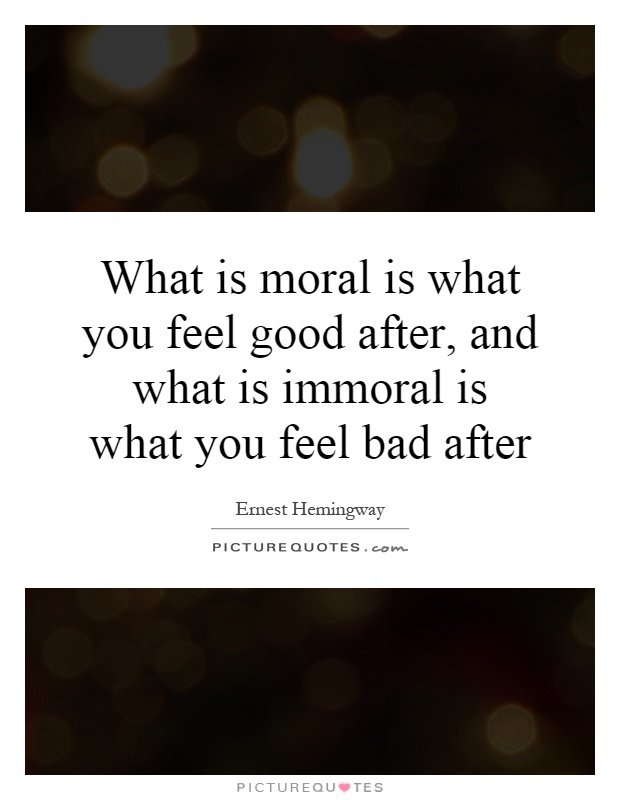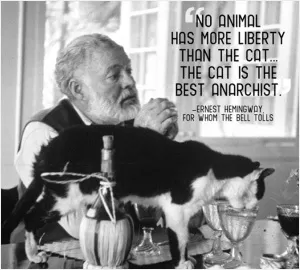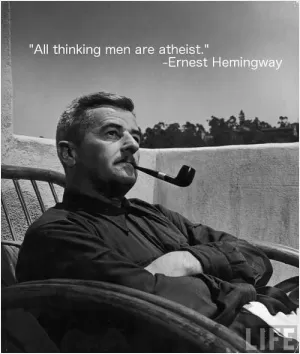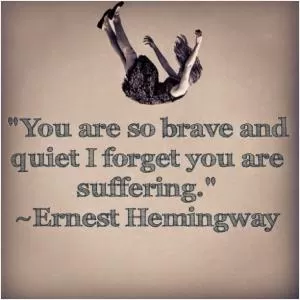What is moral is what you feel good after, and what is immoral is what you feel bad after

What is moral is what you feel good after, and what is immoral is what you feel bad after
Ernest Hemingway, the renowned American author known for his concise and impactful writing style, often explored themes of morality and ethics in his works. One of his most famous quotes, “What is moral is what you feel good after, and what is immoral is what you feel bad after,” encapsulates his belief in the importance of personal conscience and the consequences of one’s actions.Hemingway’s characters often grapple with moral dilemmas and the repercussions of their choices. In his novel “The Old Man and the Sea,” the protagonist Santiago faces the ethical dilemma of whether to kill the marlin he has been struggling to catch or let it go. Ultimately, Santiago feels a sense of peace and fulfillment after catching the fish, despite the physical and emotional toll it takes on him. This suggests that what is moral for Santiago is determined by his own feelings of satisfaction and accomplishment.
Similarly, in “For Whom the Bell Tolls,” Hemingway’s protagonist Robert Jordan must navigate the moral complexities of war and violence. Jordan grapples with the ethical implications of his actions as a soldier fighting in the Spanish Civil War, questioning the righteousness of killing in the name of a cause. Ultimately, Jordan’s moral compass is guided by his own sense of duty and honor, leading him to make difficult decisions that he believes are necessary for the greater good.
Hemingway’s own life was marked by a strong sense of personal integrity and moral responsibility. He was known for his code of behavior, which emphasized courage, honesty, and loyalty. Hemingway’s belief that morality is determined by one’s own feelings of right and wrong is reflected in his writing, where characters often face moral dilemmas that test their principles and values.












 Friendship Quotes
Friendship Quotes Love Quotes
Love Quotes Life Quotes
Life Quotes Funny Quotes
Funny Quotes Motivational Quotes
Motivational Quotes Inspirational Quotes
Inspirational Quotes